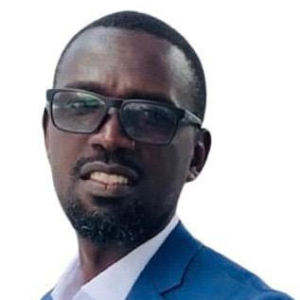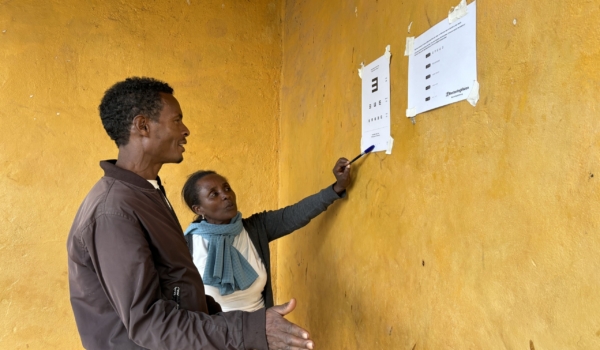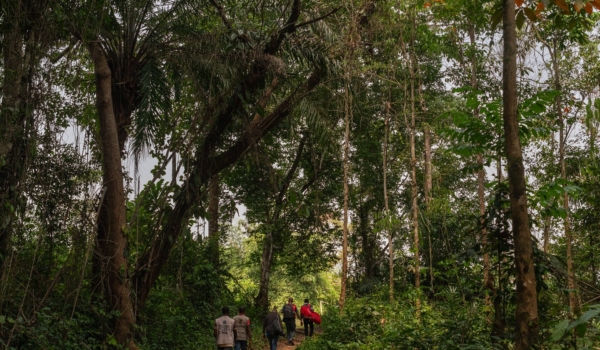Launched in 2017 by Last Mile Health, the Community Health Academy aims to revolutionize training for community health workers and health systems leaders globally by leveraging digital education. By 2021, the Academy will support Ministries of Health to train over 30,000 community health workers and health systems leaders, expanding access to quality care to millions of people.
Critical to engaging target learners and ensuring the curriculum is adapted to and informed by national contexts, the Academy established two regional hubs in strategic locations. Each regional hub is hosted by an academic institution and serves as a link between the region and Academy headquarters. The East & Southern Africa Hub is located at Makerere University in Kampala, Uganda, and the West & Central Africa Hub is located at the University of Liberia in Monrovia, Liberia.
As part of the Regional Hub structure, the Regional Faculty Network for East & Southern Africa was launched in August 2020. The network is composed of 13 local experts positioned to ensure that regional and national priorities inform the Academy’s approach. This includes influencing global program content and assisting with adaptation of global resources to meet local needs, for instance, through the facilitation of blended learning opportunities. The 13 members come from Ministries of Health and Education, academic and training institutions, service delivery and donor partner agencies, digital health, and the private sector to support the Academy’s scale and reach in the region.
Members of the Regional Faculty Network
Mr. Kenneth Nyehoora Mugumya, Co-Chair
Kenneth Mugumya, is the Regional Engagement Director for East & Southern Africa at the Community Health Academy at Last Mile Health. A health and social policy specialist, he has provided leadership in health systems strengthening, capacity building of health workers, implementation of digital health initiatives over the years, with deep experience working with governments, the donor community, and implementing partners at the international and national levels. He has also provided technical support and leadership in community health policy development, national health sector development plans, and advocacy. He is currently focused on health worker capacity building using digital health platforms and strengthening community health systems to bring key interdisciplinary players together to strengthen primary healthcare interventions. He has an MA in health and social policy from London Metropolitan University and a bachelor’s degree in social work and social administration from Uganda Christian University.
 Professor Nelson Sewankambo, Co-Chair
Professor Nelson Sewankambo, Co-Chair
Nelson K. Sewankambo is a Professor of Medicine and Principal College of Health Sciences at Makerere University, where he formerly served as Dean of the School of Medicine. He is a Fellow of the World Academy of Sciences, the African Academy of Sciences, and Uganda National Academy of Sciences, and is an Honorary Fellow of the London School of Hygiene and Tropical Medicine and an External Affiliate of the US National Academy of Medicine. Formerly, he served as the President of UNAS and Vice-President of The Network of African Science Academies. He has honorary doctorates from Johns Hopkins School of Public Health and McMaster University. He has led or engaged in national, continental and global health professions capacity building initiatives including MEPI/MESAU, NURTURE, African Forum for Research and Education, Afya Bora, INCLEN, and Consortium of Universities for Global Health. He is the Director for Training Health Researchers into Vocational Education in an East Africa consortium, and Uganda Chartered HealthNet.
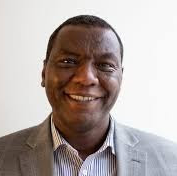 Dr. Abera Leta
Dr. Abera Leta
Dr. Leta is a physician with over eighteen years of experience in project management, health program implementation, and health systems strengthening. He is the former Executive Director of Partners In Health-Lesotho, where he was responsible for health system strengthening initiatives across Lesotho. Most notably, he supported the Ministry of Health’s National Health Reform, when he served as the Technical Advisor to the Ministry of Health of Lesotho. Dr. Leta received a bachelor’s degree in medicine from Addis Ababa University, and a master of science in public health from the University of Nottingham School of Community Health.
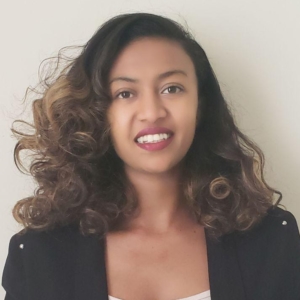 Dr. Frehiwot Nigatu
Dr. Frehiwot Nigatu
Dr. Frehiwot is the Acting Executive Director at The International Institute for Primary Health Care in Ethiopia. Before joining IIfPHC-E, she worked with Project HOPE as the Community Service Director for the USAID-funded HIV program. She also worked at the Federal Ministry of Health in Ethiopia as the Assistant Director for the Disease Prevention and Control Program, as well as the National HIV program team lead. Dr. Frehiwot received a degree in medicine from Jimma University and has more than eight years of experience in public health program management primarily focusing on health system strengthening.
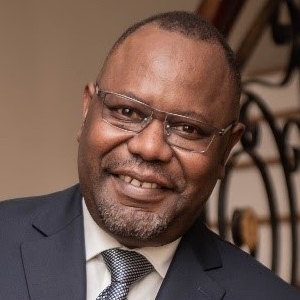 Dr. Henry Mwanyika
Dr. Henry Mwanyika
Dr. Henry Mwanyika is PATH’s Digital Health Regional Director for Africa and brings more than 20 years of experience in the commercial and public ICT sectors and with health NGOs. He assists African countries in the design of end-to-end integrated data systems by developing a roadmap for ICT infrastructure and applications through inclusive stakeholder input. He has led PATH’s digital health work in Zambia, Kenya, Ghana, DRC and Tanzania. He holds a PhD in Health Informatics from the Swiss Tropical and Public Health Institute at the University of Basel in Switzerland, an MSc in Business and IT from the University of Strathclyde in the United Kingdom, and a BSc in Computer Science from the University of the West of England.
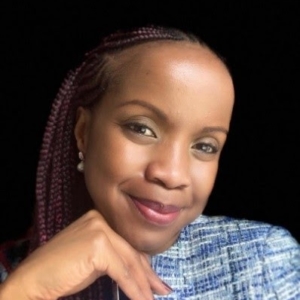 Dr. Maureen Momanyi
Dr. Maureen Momanyi
Dr. Maureen Momanyi is the Community Health Lead and a primary healthcare champion at UNICEF, where she provides strategic leadership, guidance, and technical oversight to the design and implementation of national community health programmes and global community health partnerships and initiatives. Prior to joining UNICEF, Maureen was working with the One Million Community Health Workers Campaign at Columbia University as Deputy Director, providing advisory, advocacy, and technical support to multiple countries in sub-Saharan for the scale up of community health worker programmes. Maureen has extensive experience in the health sector designing, implementing, and evaluating health strategies for various countries working through various public medical, academic, and research institutions. She holds an MPH from the University of California Berkeley and a bachelor’s degree in medicine and surgery from the University of Nairobi, and a certificate in global program management and leadership from the University of Washington.
 Dr. Phionah Atuhebwe
Dr. Phionah Atuhebwe
Dr. Atuhebwe is an experienced vaccinologist and immunisation expert, as well as a sexual and reproductive health specialist with deep project management experience in the public health sector. She is currently the New Vaccines Introduction Medical Officer at the World Health Organisation Regional Office for Africa in Brazzaville, Congo. In this role, she leads the WHO’s work in the African region to introduce new vaccines and increase uptake of underutilized vaccines including in outbreak situations. Previously, she worked with PATH to lead the introduction of new vaccines in Africa and Asia. She holds a bachelor’s degree in medicine and surgery from Mbarara University in Uganda, an MPH from the University of Leeds, and postgraduate training in Vaccinology from University of Cape Town and Project Leadership and Management from Cornell University.
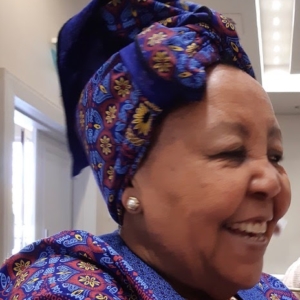 Dr. Mpolai Moteetee
Dr. Mpolai Moteetee
Dr. Moteetee is a physician and public health specialist currently working as an independent consultant. She serves as the Chairperson of the Board of Directors for the Panos Institute Southern Africa. Previously, She worked for UNICEF in Nigeria, Somalia, and Liberia with a focus on primary healthcare strengthening and revitalization. Prior to that, she served as a consultant for many governmental and non-governmental initiatives on HIV/AIDS and sexual and reproductive health. This work included, but was not limited to, the finalization of the HIV strategic plan for Eritrea; development of the joint TB-HIV concept note for Ethiopia; the RSSH component Request to Global Fund for Sierra Leone; the Development of the multi-Sectoral Integrated Strategic Plan for the Prevention and Control of Non-Communicable Diseases in Lesotho; Emergency Obstetric and Neonatal Care Needs Assessment in Lesotho; and many more. She is the former Director General of Health Services at the Ministry of Health and Social Welfare in Lesotho, and the former Chief Executive/Director General Lesotho AIDS Programme Coordinating Authority. As an academic, Dr. Moteetee has published extensively on HIV/AIDS and health policy and planning, among other themes. She holds a bachelor’s degree in medicine and surgery from the University of Nairobi and MPH from the Johns Hopkins University School of Public Health.
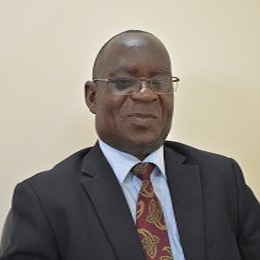 Dr. Upenytho George DuGuMm
Dr. Upenytho George DuGuMm
Dr. Upenytho George DuGuMm is a family physician and the Commissioner of Health Services for Community Health at the Uganda Ministry of Health. He also serves on the COVID-19 National Taskforce. Previously, he worked with the Ministry of Health as a consultant in public health and as a technical advisor for the National TB/Leprosy Control Program. He is the former Hospital Director of Mbarara Regional Referral Hospital. He holds an MPH from Makerere University and a bachelor’s degree in medicine. His expertise is in strategic planning, program management, global health, program development and evaluation, as well as policy and proposal writing.
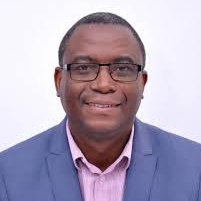 Mr. Josephat Kakoma
Mr. Josephat Kakoma
Mr. Kakoma is the Executive Director of the Africa Constituency Bureau for the Global Fund. Previously, he was the Capacity Development Advisor in the Health Office of USAID Zambia and Program Manager at the Churches Health Association of Zambia. He combines skills in policy analysis and policy making, institutional strengthening and organizational development, change management, nonprofit organization management, public sector strengthening, program design, as well as management in the global health sphere. He is a community and social services professional with an MA in public policy and management from University of York and an MPH from the University of Manchester.
 Dr. Mary Katepa-Bwalya
Dr. Mary Katepa-Bwalya
Dr. Mary Katepa-Bwalya is a pediatrician and public health specialist with more than 30 years of clinical and managerial experience working at the local, national, and African regional levels. Currently, she is working at the WHO Zambia Country Office as a National Professional Officer for Child and Adolescent Health. She has been instrumental in the introduction and adaptation of WHO training packages, including infant and young child feeding, integrated community case management of common childhood illnesses, and the IMCI Computerised Adaptation and Training Tool. As the Clinical Director for Paediatric Centre of Excellence for HIV at the Children’s Hospital of Lusaka’s University Teaching Hospital, Mary successfully spearheaded the introduction of provider initiated testing in counselling which was adopted nationally. She has been actively involved in managing national immunization campaigns and the control and response of epidemic-prone diseases including the current COVID-19 response in Zambia.
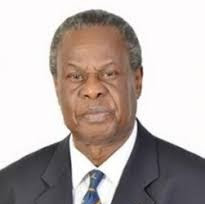 Professor Francis Omaswa
Professor Francis Omaswa
Francis Omaswa is the Executive Director of the African Centre for Global Health and Social Transformation. He is a cardiovascular surgeon and a fellow of the Royal College of Surgeons of Edinburgh. He is the founding President of the College of Surgeons of East, Central and Southern Africa and a Senior Associate at the Johns Hopkins Bloomberg School of Public Health. He is the former Director General of Uganda Health Services at the Ministry of Health and Chancellor of Busitema University. He founded the Global Health Work Force Alliance and was also the founding Director of the Uganda Heart Institute. In the past, he served as Chief Surgeon and Head of the Quality Assurance Program at the Uganda Ministry of Health, Special Adviser to the Director General of the World Health Organization, and was one of the architects of the Global Fund to Fight Aids, TB and Malaria.
 Sukanya Borthakur
Sukanya Borthakur
As a global Community Health Advisor for Medical Teams International, Sukanya is the technical lead for Tanzania and Uganda Community Health programs. She is also a member of the National Steering Committee for Community Health in Uganda. She previously led Medical Teams’ community health program for Rohingya refugees in Cox’s Bazaar, Bangladesh as an implementing partner of UNHCR and UNICEF. Sukanya is on the Norwegian Refugee Council’s standby roster as a Humanitarian Communications Expert and worked as a Protection Officer in Turkey for the Syrian refugee response. Sukanya earned her PhD in Refugee and Communications Studies at Birmingham City University in the United Kingdom.
Learn More:
- Read about the Community Health Academy
- Check out the COVID-19 Digital classroom and the COVID-19 Library
- Explore the COVID-19 Community Health Impact Coalition Member Resource wiki
- Using Google Play for Android, download the Community Health Academy app, or the capacity building apps for Ethiopia and Uganda

